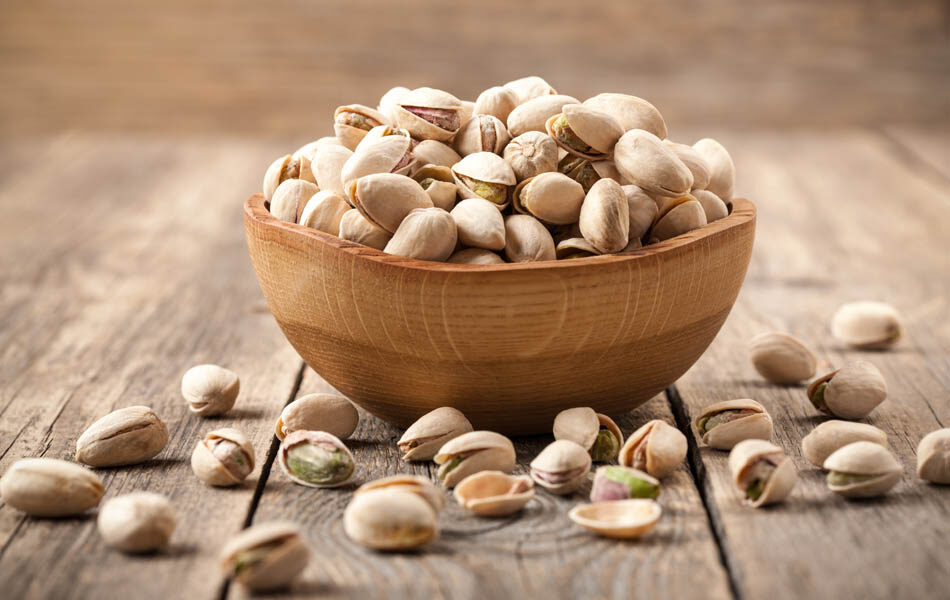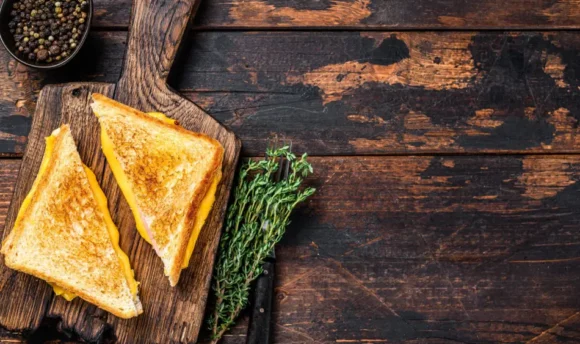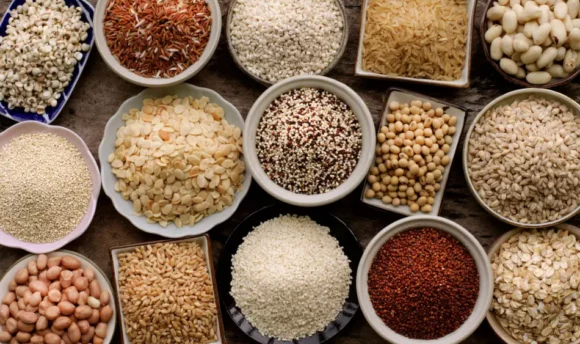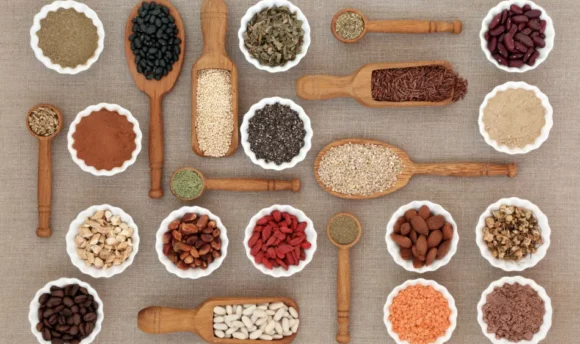Are Pistachios Healthy? Health Benefits and Nutrition Facts
With so many options, deciding which nut is the best fit for you and your unique dietary needs can be difficult. That being said, the health benefits of pistachios help them stand out among the competition.

Nuts are often recommended to people wanting to improve their diet and lose weight, but their high fat and calorie content can confuse people about whether they’re technically the healthiest choice.
If you’re wondering if you should eat pistachios or if their high calorie and fat content tip them toward the unhealthy side of the scale, the following article will help.
Keep reading to learn more about the unique benefits and potential side effects of upping your pistachio consumption so you can decide if they’re the right food for you.
What Are Pistachios?
Pistachios, which are the seeds of the pistachio tree after they’re dried, shaken, and lightly roasted, are members of the cashew family. They are grown mostly in central Asia and the Middle East.
Generally, pistachios are sold still in their shell, which cracks slightly during the drying process. This allows you to access the nut inside more easily. There is also the option to get pistachio nuts pre-shelled, though this option is better for cooking and not snacking.
Are Pistachios Healthy?
Yes, pistachios are a highly nutritious food that is full of vitamins and minerals, unsaturated fatty acids, and protein. Eating pistachio nuts can help you reduce your risk of cardiovascular diseases, balance your blood sugar, and even help you trim your waistline.
10 Health Benefits of Pistachios
Pistachios are a nut high in a variety of vitamins and minerals, protein-rich, and full of healthy fats. This means that eating pistachios can give you various benefits, including lowering blood pressure, aiding in weight loss, and improving cardiovascular health.
#1 High in fiber
Foods high in soluble fiber – meaning fiber that can be dissolved in water – include things like chia, oats, and many nuts, including pistachios.
Eating foods that are high in dietary fiber is an often overlooked part of healthy eating since high-fiber foods play an important role in many processes in the body.
These processes include aiding digestion to help you stay regular and lowering cholesterol levels. Increased dietary fiber intake can even help to lower blood sugar levels.
#2 Protein-rich
Nuts are known for being high in protein, and pistachios are no different. This makes them a great option for vegans and vegetarians who cannot source their protein from animal products.
Just from pistachio consumption alone, you can get around a third of your daily recommended protein, which is a must for anyone trying to increase their muscle mass, especially in the glutes.
#3 Good for the gut
Foods that are high in fiber are generally good for gut health since high-fiber diets help keep the digestive tract clear of food buildup, reducing the chances of colon cancer.
Eating pistachios gives the digestive system a healthy dose of fiber, and one study done to test the effects of certain nuts on the bacteria in the gut even showed that pistachios make a more positive impact on gut health compared to some other nuts like almonds.
#4 Improve heart health
Another one of the health benefits of eating pistachios that can’t be overlooked is the effect that pistachio nuts have on cardiovascular health, especially blood pressure and cholesterol levels.
In one study done to assess the effects of pistachios on cholesterol levels, they found an 11% reduction in overall cholesterol levels over the span of four weeks.
This is likely because of the high amounts of monounsaturated fats and antioxidants found in pistachios, which are proven to positively affect cholesterol.
#5 Balancing for blood sugar
Finding foods that are high in carbohydrates but don’t create large spikes in blood sugar levels can be difficult since carbohydrates are broken down into sugar.
For anyone that struggles with blood sugar control, including people with diabetes, pistachios are a great option.
This is because of the high amount of dietary fiber in these nuts, which keeps the body from breaking down the carbs too quickly, limiting the amount of sugar released into the blood at one time.
#6 Keep blood vessels healthy
Eating pistachios can also have health benefits related to the elasticity and health of the blood vessels, helping to lower blood pressure and improve blood flow overall.
Poor blood vessel health and its effect on your blood pressure can leave you feeling fatigued and lead to conditions like heart disease and erectile dysfunction, which eating 100 grams of dry roasted pistachios every day has shown to help reverse.
#7 Can aid weight loss
Eating pistachios to help you lose weight might seem counterintuitive because they are high in fat and calories, but the high fat and protein content in them can help you feel fuller for longer after eating, which can result in you eating fewer calories overall.
There is also some evidence to suggest that by increasing your intake of monounsaturated fats, you can boost your fat metabolism, helping you burn more calories in the form of fat throughout the day.
#8 Full of antioxidants
Antioxidants are an often underrated substance that can be beneficial in reducing the likelihood of several diseases, including cancer and cardiovascular-related health conditions, thanks to the impact that antioxidants can have on reducing blood pressure.
There’s also some evidence to suggest that increasing the number of antioxidants in your diet can improve blood sugar control, reducing the chances of getting diabetes.
#9 Healthy snack
Other than the hassle of having to deshell the nuts before eating them, pistachios are an easy-to-eat snack packed with protein, healthy fat, and essential amino acids.
They are a great alternative for people who often turn to fast food or sugary treats to hold them over until dinner.
#10 Can prevent kidney stones
Among the many health benefits that pistachios provide because of their vitamin and mineral content is the ability of pistachio consumption to help prevent kidney stones when swapped for other animal proteins.
Potassium is important for proper kidney function. Although too much of it can negatively affect the kidneys, swapping out a steak for a serving of pistachios could help support kidney health.
What Happens if You Eat Too Many Pistachios? 3 Side Effects of Pistachios
As with anything good, eating too many pistachios can also cause adverse effects like weight gain, digestive issues, and unwanted weight gain.
#1 Digestive issues
A high-fiber diet can improve many aspects of your digestive health, but too much fiber can actually have the opposite effect, causing bloating, constipation, gas, and general discomfort.
To prevent these negative effects, make sure to drink plenty of water before and after consuming pistachios.
#2 Kidney problems
Potassium, in the right amount, can help reduce the likelihood of getting kidney stones and overall improve kidney function, but too much, especially for people with pre-existing conditions, can put them at a higher risk of kidney disease.
#3 Weight gain
Eating any high-calorie food can put you at risk of exceeding your daily recommended calorie intake, which will, in turn, lead to weight gain.
To keep this from happening, it’s a good idea to portion out the proper serving size (100 grams) before you start eating.
Nutrition Facts of Pistachios
Having a clear understanding of the nutritional value of the food you’re eating can empower you to make the best choices regarding calorie intake, eating enough dietary fiber, and getting all the vitamins and minerals you need to feel your best.
Nutritional value (per 100g)
| Calories/Nutrient (per 100g) | Amount |
| Calories (kcal) | 560 |
| Sodium (mg) | 1 |
| Net Carbs (g) | 16.6 |
| Fiber (g) | 10.6 |
| Sugar (g) | 7.66 |
| Fats (Total) | 45.3 |
| Fatty acids, total saturated (g) | 5.91 |
| Protein (g) | 20.2 |
| Cholesterol (mg) | 0 |
| Glycemic Index (GI) | 15 |
Source: https://fdc.nal.usda.gov/fdc-app.html#/food-details/170184/nutrients
High in calories and fats
Pistachios are a food that is high in fat content and therefore also very calorie-dense.
Although high-fat foods often get a bad rap, eating foods that are high in unsaturated fats actually has many benefits for the body, specifically the cardiovascular system.
Fatty foods can also help you feel satisfied for longer, which can be useful for helping you feel fuller longer.
Good source of protein
Eating 100 grams of pistachio nuts gives you close to a third of the daily recommended amount of protein, depending on your body weight.
Protein is needed for muscle building and repair, and high-protein foods can also help you feel fuller for longer, which can be useful for appetite suppression resulting in weight loss.
High in carbohydrates
In a 100-gram serving of pistachios, there are around 17 grams of carbohydrates, making it a great source of carbs. However, since the recommended daily carb intake is between 200–350 grams, eating additional healthy high-carb foods like multigrain bread is necessary.
Eating enough carbohydrates is necessary if you do a lot of physical activity since carbs are the main energy source for your muscles.
Rich in vitamins and minerals
Pistachios are a superfood that contains a variety of essential vitamins and minerals used for various bodily processes, most notably potassium, vitamin B6, iron, and magnesium.
- Potassium:
One of the most important functions of potassium in our bodies is its role in muscle function, including regulating the heartbeat.
- Vitamin B6:
Eating a diet high in vitamin B6 can help you keep your nervous and immune systems strong.
- Iron:
Iron is the mineral that creates hemoglobin, the protein in our blood that transports oxygen throughout our bodies. Low iron levels can lead to anemia which leaves you feeling low energy.
- Magnesium:
Many important processes in the body involve magnesium, and healthy levels of this mineral support healthy nerve function and energy production.
Glycemic index of pistachios
The glycemic index of a food is generally related to how much carbohydrates the food contains and, therefore, how much of a spike in blood sugar it will cause when you consume it.
Although pistachios contain a high amount of carbohydrates, they’re also very high in fiber, which delays the digestion of carbohydrates and has a balancing effect on blood sugar levels.
The fiber content in pistachios keeps the glycemic index of pistachios relatively low at 15.
Healthy Pistachio Recipe
If you want to start eating pistachios so you can enjoy one of the many benefits of this superfood, here’s a recipe to help you get started.
Ingredients
- 1 can chickpeas (15oz)
- 1/2 cup shelled pistachios
- 2 cloves garlic
- 2 tablespoons fresh parsley (optional)
- 2 tablespoons tahini
- 2 tablespoons lemon juice
- 1 tablespoon extra-virgin olive oil
- Sea salt and pepper, to taste (optional)
Directions
- Drain the chickpeas in a sieve and collect the liquid.
- Add chickpeas, pistachios, garlic, parsley (optional), tahini, lemon juice, and olive oil to the container of a food processor.
- Process the mixture, adding just enough reserved liquid from the chickpeas to create a smooth, creamy texture. Slowly add the olive oil while pureeing.
- Season with salt and pepper as desired (optional).
Hummus is a great snack to be eaten with whole-grain pita bread or crackers, as a dipping for fresh vegetables, or as a spread on sandwiches.
Meals like these are also great for breaking intermittent fasts since they are easy to digest and full of nutrient-rich foods.
If you’re interested in getting started with intermittent fasting or are already on a fasting regime but struggle to find meals that are both healthy and delicious, DoFasting could be a good option for you.
It’s a fasting app with over 5,000 healthy recipes specifically created to be eaten between fasting periods. They even offer supplementation options to help you deal with food cravings.

- Useful progress tracker and calendar
- Calorie tracker to track daily caloric intake
- Over 5,000 nutritious recipes
FAQs
Most nutritionists recommend that you eat no more than 2oz (or 57 grams) of roasted pistachios a day since they are high in healthy fats that, although good for you, can bring your calorie count higher than the daily recommendation.
Overall, pistachios are a healthy nut that has many health benefits. That being said, everything is better in moderation, and too many pistachios can gain unwanted weight and digestive issues.
Yes, eating any foods that are high in unsaturated fats, including pistachios, can be helpful for weight loss because of the suppressing effect they have on the appetite. The high fat content also helps to improve fat metabolization.
100 grams of pistachios, the maximum amount of pistachios that dietitians recommend eating per day, has 20 grams of protein, around 35% of the recommended amount of daily protein for someone weighing 165 pounds.
Pistachios are considered tree nuts, meaning people with allergies to other tree nuts like cashews, almonds, and pecans should also steer clear of pistachios.
Eating no more than 2oz of pistachios a day is recommended, which ends up being around 100 nuts.
Pistachios have a glycemic index of 15, meaning they will not spike blood sugar levels too quickly. This makes pistachios a suitable food for people with diabetes.
A Word From Our Nutritionist
Eating nuts is often thought of as a good option for anyone wanting to improve their diet to lose weight.
But it’s important to remember that the most important eating habit for anyone wanting to lose weight is to eat in a calorie deficit, and eating pistachios, if you aren’t aware of their high-calorie content, can put you in a big calorie surplus, leading to unwanted weight gain.
When you eat pistachios, it’s a good idea to put portion out 100 grams of pistachios so that you don’t end up mindlessly snacking, and purchasing salted pistachios still in the shell can also help you with portion control since you’ll have a visual cue of how many nuts you’ve already eaten.
Bottom Line
Pistachios are a kind of tree nut that is full of protein, fiber, healthy fat, and many of the vitamins and minerals that you need to maintain optimal health.
Including more pistachios in your diet, or even using them as a replacement for animal protein for some of your meals, can help you improve your cardiovascular health, the health of your kidneys and gut health, and even regulate your blood sugar levels.

- Useful progress tracker and calendar
- Calorie tracker to track daily caloric intake
- Over 5,000 nutritious recipes

















































 Select your language:
Select your language: 








